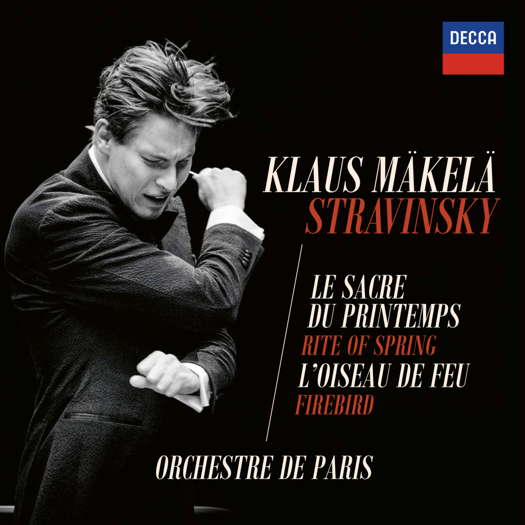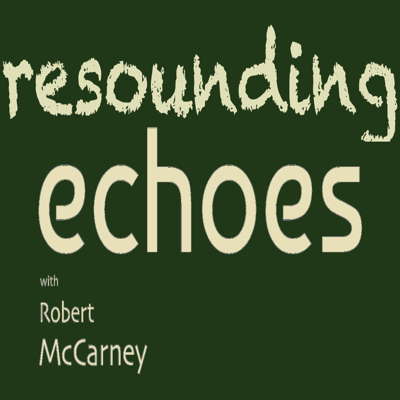 DISCUSSION: John Dante Prevedini leads a discussion about Music and the Visual World, including contributions from Celia Craig, Halida Dinova and Yekaterina Lebedeva.
DISCUSSION: John Dante Prevedini leads a discussion about Music and the Visual World, including contributions from Celia Craig, Halida Dinova and Yekaterina Lebedeva.

A Compelling Account
Stravinsky for orchestra, enjoyed by GEOFF PEARCE
'Mäkelä and the Orchestre de Paris share a compelling vision in both works, and are on their very best form.'
Klaus Mäkelä is a conductor that richly deserves all the hype and admiration surrounding him. Generally I am very wary of the marketing teams that drive much of music making these days, but from the time I first listened to his recordings, my attention was immediately arrested. This fine conductor is only twenty-seven years of age, but he possesses an insight, discipline and personality that sets him quite apart from many other fine conductors of this time. This recording of Igor Stravinsky's The Rite of Spring and The Firebird reinforces the high esteem I have for this young conductor.
Prepare yourself, on hearing The Rite of Spring you will hear fine detail, especially in the opening sections, that are often overlooked. I noticed this especially in the opening movement in the cor anglais, where in many other recordings, the phrasing is not so precise.
Listen — Stravinsky: Introduction (The Rite of Spring)
(485 3946 track 1, 0:00-0:37) ℗ 2023 Universal Music Operations Limited :
I also like very much the overall sound of Orchestre de Paris, especially in the woodwind, as like just a few orchestras in the world today, they have retained their essential sound.
Listen — Stravinsky: Dances of the Adolescents (The Rite of Spring)
(485 3946 track 2, 1:00-1:52) ℗ 2023 Universal Music Operations Limited :
There is a tremendous dynamic range present, but it never feels forced or overdone. This can be the case with many recordings. Nor is there too much reverberation - either naturally occurring in the hall, or added later - and I think the recording engineers have been faithful in what they have recorded, and this really hits the sweet spot for me. Mäkelä has a reputation for gaining the respect and willingness to collaborate with his musicians very quickly, and this fine recording is testament to this. I listened to it three or four times before I started to write this review.
Le Sacre is one of those works that, at least for me, defies description. There are so many very contrasting moods. I have never played the work, and it terrifies me in its rhythmic complexity and the demands it puts on the orchestral musicians. In the wrong hands, it can sound very messy, but Mäkelä and his fellow musicians give a compelling account that made me feel as if I was hearing the work for the first time and it took my breath away.
Listen — Stravinsky: Sacred Dance (The Rite of Spring)
(485 3946 track 14, 3:59-4:42) ℗ 2023 Universal Music Operations Limited :
Written just sixteen months earlier than The Rite of Spring, The Firebird is more along the lines of the concepts of Rimsky-Korsakoff, who had been Stravinsky's teacher for a time. Whereas The Rite was the product of a dream that Stravinsky had, The Firebird story was handed to Stravinsky by Diaghilev and Fokine and was a product of the rich Russian folk tale tradition. Whilst Stravinsky used genuine folk melodies in this work, his complex chromatic harmonic language and masterful orchestration showed the direction he was taking, and that would be his hallmarks in his works of this period.
Listen — Stravinsky: Appearance of the thirteen Enchanted Princesses
(The Firebird)
(485 3946 track 21, 1:01-1:39) ℗ 2023 Universal Music Operations Limited :
I first came across The Firebird, like many listeners, from the suite that the composer compiled from the ballet, and this is the form it is more often presented as. Here we have the complete ballet. I have an earlier recording of this complete ballet, conducted by Seiji Ozawa from 1973 with, coincidentally, the same orchestra. Both are equally thrilling accounts of this work. I was blown away when I bought the Ozawa recording back in my youth, and I still enjoy it immensely. It is lush when it needs to be, and the solos in the orchestra are expressive and do sound different, especially in the woodwind, when compared to this Mäkelä recording. I feel there is more shape to where the phrases are going. I suspect Mäkelä's approach was somewhat different and he perhaps pulls the emotional component of some of these solos back a little. At the end of the day, it is a judgement call by both conductor and musician. Both approaches work totally fine, but just occasionally, I felt a little constrained, perhaps because I have listened to the older recording so many times over nearly fifty years. One does tend to get an ideal performance fixed in the mind, and this can be hard to break.
Listen — Stravinsky: II Tableau (The Firebird) (Ozawa, EMI/Warner Classics)
(track 24, 2:00-2:40) ℗ 1973/2015 Parlophone Records Limited :
Listen — Stravinsky: II Tableau (The Firebird) (Mäkelä)
(485 3946 track 33, 2:08-2:45) ℗ 2023 Universal Music Operations Limited :
On balance though I enjoy the Mäkelä just as much but for different reasons, and the modern recording techniques, the overall standard of the performers, and Mäkelä's overall vision, mean that this is a very easy account to admire and fully enjoy.
I believe that you could not go wrong purchasing this very fine Decca recording. Klaus Mäkelä and the Orchestre de Paris share a compelling vision in both works, and are on their very best form. I hope that you enjoy this as much as I have.
Copyright © 10 March 2023
Geoff Pearce,
Sydney, Australia




